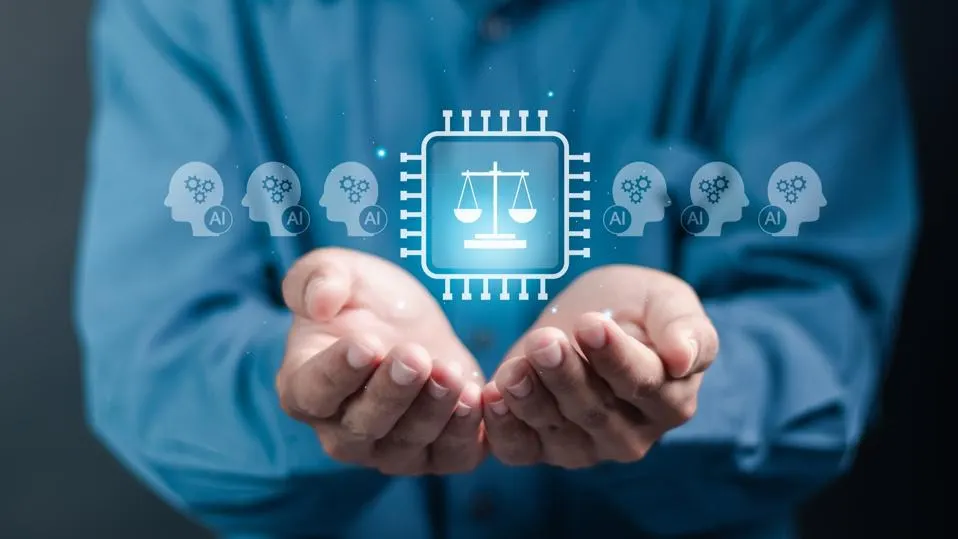The Evolving Internet: Navigating Risks Amidst Immersion, Decentralization, And Generative AI
9 November 2023
The future internet is on the horizon, promising unprecedented engagement and innovation. Yet, as we incorporate immersive tech, decentralized systems, and generative AI, we also invite new complexities.

Addressing Safety, Privacy, And AI Authenticity Concerns
Immersive experiences like VR and AR present significant safety and privacy issues. Companies could potentially harvest vast amounts of user data, from biometric details to behavioral patterns. Moreover, generative AI, which can produce content ranging from art to articles, poses the risk of spreading misinformation, fake news, or even creating synthetic identities. Distinguishing between AI-generated and human-created content will become crucial for maintaining trust and authenticity online.
Moreover, the advent of digital avatars heightens the risk of identity theft. Ensuring our children’s safety becomes even more challenging as their virtual experiences become visually inaccessible to us.
Regulation Is Still Catching Up
We need policy, governance, and rules for the new world of the future internet, so we can all enjoy a safe and pleasant experience online. Unfortunately, technology is advancing far faster than our regulatory policies.
There are a lot of legal gray areas that still need to be ironed out. For instance, what kinds of behavior are considered acceptable and not acceptable in virtual environments? What happens if someone commits an offense online that would normally be considered a prosecutable crime in the real world? Complaints of assault and sexual harassment are already being reported in virtual environments like Meta’s Horizon Worlds.
Adding to this, the rise of generative AI requires new policies on content authenticity, copyright issues, and ethical standards. Whos accountable if an AI generates harmful or misleading content?
Infrastructure And The Burden Of AI-Intensive Processes
The next-generation internet is not merely about faster browsing speeds or improved connectivity. With the integration of generative AI, we're talking about machines that can generate vast amounts of content, simulate complex environments, and process incredible amounts of data in real time. This means data centers, cloud providers, and edge computing nodes must undergo a massive transformation.
Our future devices, from smart glasses to wearables, will need to handle AI computations locally (edge AI) for real-time tasks. Simultaneously, they'll communicate with mega data centers for heavy-lifting tasks. Moreover, with the decentralization trend, there's a push for distributed computing resources. However, these come with their own challenges of synchronization, data security, and latency.
Energy Concerns: Beyond the Grid
The future internet's combined energy needs, especially as AI computations grow more complex and frequent, could overshadow many of today's industries. Decentralized systems, like blockchain, already consume significant energy due to their consensus algorithms. Add generative AI to the mix, and we're looking at the need for sustainable, renewable, and perhaps even new forms of energy to meet demands.
The tech industry must pioneer green data centers, optimize algorithms for energy efficiency, and push for renewable energy sources. It's a race against time as we try to match our innovations with the planet's well-being.
Interoperability: Building Bridges In A Fragmented Digital World
Today's digital landscape is characterized by isolated silos—platforms that don't communicate well with others. As the lines blur between reality and virtual environments and as AI-generated content becomes ubiquitous, there's a dire need for seamless transitions between these environments. For instance, an AI-generated artwork as an NFT should be viewable, usable, and transferable across multiple metaverse platforms without hitches.
Interoperability also pertains to standardizing AI outputs, ensuring that an AI model or system in one platform or application can understand and work with AI-generated content from another. This requires extensive collaborations, shared standards, and perhaps even new intermediary platforms and protocols to translate between different digital ecosystems.
Skill Shortage: Nurturing The Next-Gen Digital Craftsmen
Building and maintaining the future internet requires talented people who understand not just coding but the intricacies of virtual realities, the ethics and mechanisms of AI, and the principles of decentralized systems. It's a multidisciplinary challenge.
Generative AI, for instance, isn't just about programming. It's about training models, understanding nuances, curating datasets, and ensuring ethical guidelines are met. Schools, universities, and online courses need to evolve, offering curricula that merge tech, ethics, design, and more.
Companies, too, play a role. They need to foster environments where continuous learning is encouraged, where experts in older technologies are retrained in the latest, and where collaboration across disciplines is the norm.
Related Articles
Will AI Solve The World’s Inequality Problem – Or Make It Worse?
We are standing on the cusp of a new technological revolution. AI is increasingly permeating every aspect of our lives, with intelligent machines transforming the way we live and work.[...]
How You Become Irreplaceable In The Age Of AI
In a world where artificial intelligence is rapidly advancing, many of us are left wondering: Will AI take our jobs?[...]
Why Apple Intelligence Sets A New Gold Standard For AI Privacy
In the rapidly evolving world of artificial intelligence, privacy concerns have become a hot-button issue.[...]
Can Your Device Run Apple Intelligence? What You Need To Know
Apple's announcement of Apple Intelligence has sent waves of excitement through the tech world.[...]
10 Amazing Things You Can Do With Apple Intelligence On Your IPhone
Apple Intelligence is poised to revolutionize the iPhone experience, offering a suite of AI-powered tools that promise to make your digital life easier, more productive, and more creative.[...]
Agentic AI: The Next Big Breakthrough That’s Transforming Business And Technology
The world of artificial intelligence is evolving at a breakneck pace, and just when you thought you'd wrapped your head around generative AI, along comes another game-changing concept: agentic AI.[...]
Sign up to Stay in Touch!
Bernard Marr is a world-renowned futurist, influencer and thought leader in the fields of business and technology, with a passion for using technology for the good of humanity.
He is a best-selling author of over 20 books, writes a regular column for Forbes and advises and coaches many of the world’s best-known organisations.
He has a combined following of 4 million people across his social media channels and newsletters and was ranked by LinkedIn as one of the top 5 business influencers in the world.
Bernard’s latest book is ‘Generative AI in Practice’.










Social Media